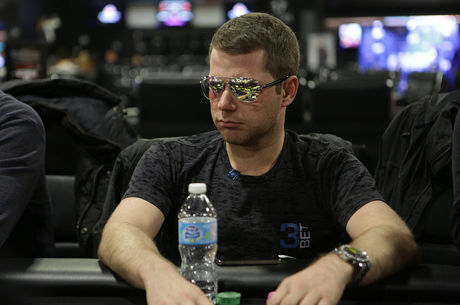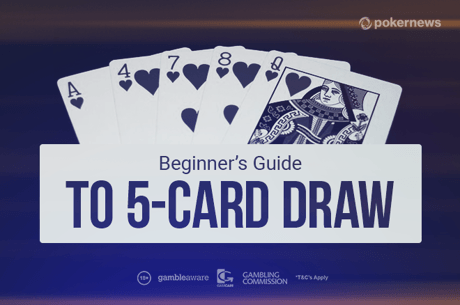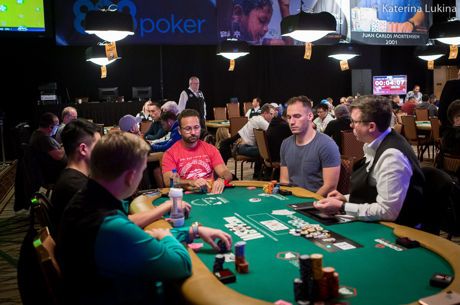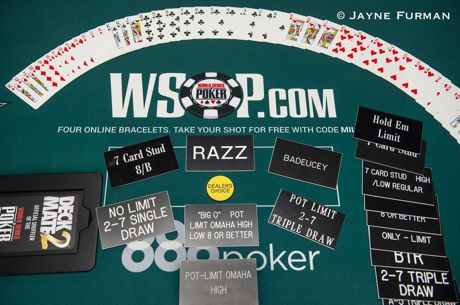Three Reasons to Hate No-Limit Hold'em
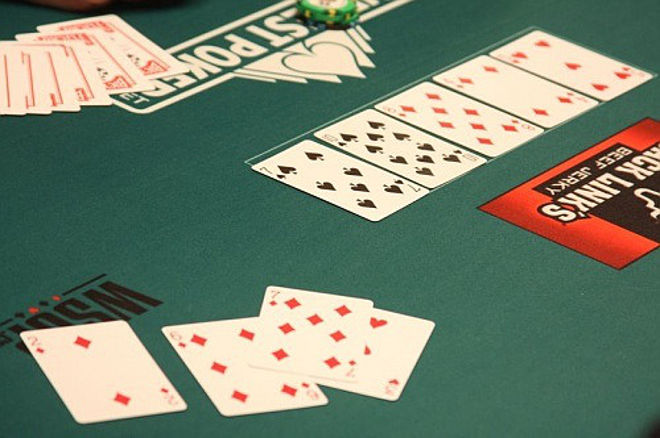
People who have been following my exploits in Las Vegas are aware of my love for the non-traditional poker games. While I'm in no way, shape, or form qualified to give expert advice on these games, I can certainly give an introduction to some of them.
First and foremost — and I'm speaking from personal experience at that stakes that I can afford — let me apologize for those mixed-game players in Las Vegas who are largely sour assholes looking to complain about even the tiniest mistake a dealer makes. I feel like this disclaimer is needed, as I don't want the existence of these disgruntled poker players discouraging newcomers. Hopefully together we can change that environment for the better.
For me mixed games are an especially entertaining way to play poker. The frequent $4/$8 mixed games we've been playing this summer with PokerNews Podcast listeners, renowned poker pros, and random walk-ups who took a liking to our jovial, gambling atmosphere have proven over and over that it's more than possible to make poker fun.
If you're sick and tired of maneuvering around with ace-king — or just looking for a new, non-hold'em challenge — here goes nothing. I'm calling these "three reasons to hate no-limit hold'em," although they might also be thought of as three reasons to try non-NLHE games.
Reason #1. No-Limit Hold'em is Way Too F'n Slow
Here's a made-up excerpt from a random no-limit hold'em cash game: "Player under the gun looks down at his cards, stares at every single player at the table, asks how much they are playing, then thinks another 35 seconds. Player folds."
This is one of my big gripes with the "Cadillac of poker" — the game has developed into a snail's-pace staring contest with little appeal for people looking to have a good time.
There's much to say about the social aspect of limit games — for one thing, since there is less pressure per decision, the games are usually much more inviting to having conversations. However, here I just want to highlight the dramatic difference in the speed of mixed games as opposed to NLHE.
If you give mixed games a try, you'll immediately see a big change of pace. For an easy comparison, think of fixed-limit hold'em, where you'll arguably play about 35-45 hands per hour as opposed to 25 hands (at best) if you're playing no-limit hold'em.
Individual decisions in limit games are often relatively less complex, as you never have to worry about bet sizing, and you'll always know what it will cost you to see a river card. When playing mixed games you'll get to play games like seven-card stud or Omaha hi-low eight-or-better, both fast-paced games in which getting out of line won't cost you 100 big blinds thanks to a single bad decision.
Reason #2: Playing Loose is Fun; Deciding For Your Whole Stack is Not
The beauty of no-limit hold'em is that it rewards fearless players, those who are highly-skilled, and people who are willing to put it all on the line with nothing. While these qualities are all highly attractive, there's something to say for not having to risk it all.
When you're playing games like 2-7 triple draw, Badugi, or seven-card stud hi-low, you'll quickly notice that it's appealing to call a small bet early in a hand to see if you can catch a good card. Also, if you're new to these games it can be fun (and less stressful) to try them knowing that your entire stack won't be at risk.
If you're currently dabbling in a bit of $1/$2 no-limit hold'em, you'll be even more comfortable playing something like $4/$8 limit. A bad, lengthy session of the latter could eventually cost you $300, but in the former you could drop that much in the first orbit.
For the bankroll, these non-NLHE games are easier to manage, and they are perfect for implementing in home games, too. As soon as you explain the rules to your friends, they'll understand that as the night goes on they'll be at a smaller risk to lose their chips. We're all about keeping it friendly here, anyway!
Reason #3: No Money in No-Limit Hold'em, Everyone's Solid
With hundreds of poker books, thousands of online training videos, and an unimaginable amount of strategy articles all focused on no-limit hold'em at everyone's disposal, it's safe to say that NLHE has become very hard to beat. Even inexperienced players aren't giving their money away like it's 2006, and nearly everyone who's been around the game for longer than a few years has a decent grasp of basic strategy concepts.
The same can't be said for mixed games.
The usual rotation of mixed games is already very inviting for people who have a knack for picking up new variants. Such players will have an even bigger advantage when play opens up and things get a little crazy as will sometimes happen in mixed games.
It's not unusual to find new games getting introduced to the mix — in fact, in some mixed games brand new variants will be invented on the spot. The ability to adapt to new rules and think outside the box is a great advantage to have, particularly versus no-limit hold'em-trained poker brains that can often be largely one-dimensional in their approach.
If you want to find soft spots in a live cash game, mixed games are the way to go. You might not be a favorite in all the games, but you'll quickly find out there's an edge to be had against every player if you make sure to get a good grasp of all of variants.
Recommended Reading/Study
If you're looking to learn more about non-NLHE games and don't want to spend too much to do so, Doyle Brunson's original Super/System remains a good resource. Also worth picking up is Ken Lo's recent title, A Poker Player's Guide to Mixed Games.
More pricey but also worthwhile for those serious about improving their mixed games are the RunItOnce videos by George Danzer and Dylan Linde.
Want to stay atop all the latest in the poker world? If so, make sure to get PokerNews updates on your social media outlets. Follow us on Twitter and find us on both Facebook and Google+!

